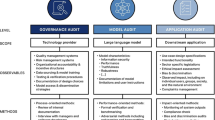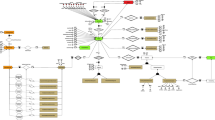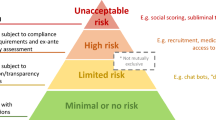Abstract
The machine readable encoding language XML is used in water informatics to describe resources and observational data, such as the Water Data Transfer Format (WDTF). WDTF is part of an Australian initiative, established by the Australian Bureau of Meteorology in collaboration with CSIRO, to collate water resources data from multiple data providers into a national water information system. A common way of validating XML data is by defining a schema using XML Schema Definition language (XSD) and performing validation using standard XSD tools. However, XSD validation lacks the ability to perform content validation to assert context, domain and organizational rules such as soft-typing, co-constraints, and code-list or vocabulary checking, which is required in the validation of WDTF data. In this paper, we describe a validation service for validating water resources data encoded in WDTF, which combines structural and content validation. We also describe the use of a vocabulary service with the WDTF validation service to perform code-list and vocabulary checking.













Similar content being viewed by others
References
Bali M (2009) Drools JBoss rules 5.0 developer’s guide. Packt Publishing
Ball M, Boley H, Hirtle D, Mei J, Spencer B (2005) The OO jDrew reference implementation of RuleML. In: Adi A, Stoutenberg S, Tabet S (eds) Proceedings of the International Conference on Rules and Rule Markup Languages for the Semantic Web (RuleML 2005), volume 3791 of Lecture Notes in Computer Science, pages pp. 218–224, Galway, Ireland, November
BODC (2009) NERC vocabulary server. http://www.bodc.ac.uk/products/web_services/vocab/ (Accessed October 2010)
Boley H, Tabet S, Wagner G (2001) Design rationale of RuleML: a markup language for semantic web rules. In: Cruz IF (ed) Proceedings of the International Semantic Web Working Symposium, Stanford, CA, USA
Brickley D, Miles A (2005) SKOS core vocabulary specification 2005-11-02. W3C working draft, W3C, November. URL http://www.w3.org/TR/2005/WD-swbp-skos-core-spec-20051102/. Updated version under http://www.w3.org/TR/swbp-skos-core-spec, Accessed July 2011
Clark J, Murata M (2001) RELAX NG specification. OASIS Committee Specification. http://www.relaxng.org/spec-20011203.html
Coen CS, Marinelli P, Vitali F (2004) Schemapath, a minimal extension to xml schema for conditional constraints. In: Proceedings of the 13th international conference on World Wide Web, pages 164–174, New York, NY, USA. ACM
GEMET (2009) GEMET webservice API. http://svn.eionet.europa.eu/projects/Zope/wiki/GEMETWebServiceAPI
Githaiga J, Duclaux G, Cox S, Yu J (2010) Spatial information services stack (SISS) vocabulary service—a tool for managing earth & environmental sciences controlled vocabularies. In: eResearch Australasia
Horrocks I, Patel-Schneider PF, Boley H, Tabet S, Grosof B, Dean M (2004) SWRL: a semantic web rule language combining OWL and RuleML, May. http://www.w3.org/Submission/SWRL (Accessed May 2011)
ISO19139 (2007) Geographic information–Metadata—XML schema implementation . Norm ISO 19139
Jecliffe R (2002) The schematron assertion language 1.5. Academia Sinica Computing Centre. http://xml.ascc.net/resource/schematron/Schematron2000.html.
Kay M (2010) A streaming XSLT processor. In: Balisage: the Markup Conference, volume 5, Montreal, Canada, August
Kifer M (2008) Rule interchange format: The framework. In: Calvanese D, Lausen G (eds) Proceedings of 2nd International Conference on Web Reasoning and Rule Systems, volume 5341 of Lecture Notes in Computer Science, pages pp. 1–11, Karlsruhe, Germany, October
Lake R, Burggraf D, Trninic M, Rae L (2004) Geography Mark-Up Language: Foundation for the Geo-Web. John Wiley & Sons. ISBN 0470871547
Mcguinness DL, van Harmelen F (2004) OWL web ontology language overview. W3C recommendation, W3C, February
Miles A, Bechhofer S (2008) SKOS simple knowledge organization system reference. Working draft, W3C, 2008. URL http://www.w3.org/TR/skos-reference. Accessed July 2011
Miles A, Pérez-Agüera JR (2007) Skos: simple knowledge organisation for the web. Cataloging & Classification Quarterly 43(3):69–83. URL doi:dx.doi.org/10.1300/J104v43n03_04. Accessed July 2011
OGC-GeoSPARQL-SWG (2011) GeoSPARQL. http://geosparql.org (Accessed August 2011)
Prud’hommeaux E, Seaborne A (2007) Sparql query language for rdf (working draft). Technical report, W3C, March. URL http://www.w3.org/TR/2007/WD-rdf-sparql-query-20070326/
Spencer B (2002) The design of j-DREW: a deductive reasoning engine for the web. In: Proceedings of the 1st CologNET Workshop on Component-Based Software Development and Implementation Technology for Computational Logic Systems, pages pp. 155–166, Madrid, Spain, September
W3C (2001) XML schema: Formal description, September. URL http://www.w3.org/TR/xmlschema-formal
W3C (2008) W3C XML schema definition language (XSD) 1.1 part 1: Structures, June. http://www.w3.org/TR/2008/WD-xmlschema11-1-20080620/ (Accessed October 2010)
W3C (2010) RIF overview, June. http://www.w3.org/TR/rif-overview (Accessed May 2011).
W3C-RDF-DAWG (2008) SPARQL query language for RDF. http://www.w3.org/TR/rdf-sparql-query/.
Walker G, Taylor P, Cox S, Sheahan P (2009) Water data transfer format (WDTF): guiding principles, technical challenges and the future. In: Anderssen R, Braddock R, Newham L (eds), 18th IMACS World Congress & MODSIM 2009 International Congress on Modelling and Simulation, pages pp. 4381–4387, Cairns, Qld., July
Acknowledgements
This work is part of the water information research and development alliance between CSIRO’s Water for a Healthy Country Flagship and the Bureau of Meteorology. The authors would like to thank the AUSCOPE team for their development and support of their vocabulary services.
Author information
Authors and Affiliations
Corresponding author
Additional information
Communicated by H. A. Babaie
Rights and permissions
About this article
Cite this article
Yu, J., Cox, S., Walker, G. et al. Use of standard vocabulary services in validation of water resources data described in XML. Earth Sci Inform 4, 125–137 (2011). https://doi.org/10.1007/s12145-011-0084-5
Received:
Accepted:
Published:
Issue Date:
DOI: https://doi.org/10.1007/s12145-011-0084-5




